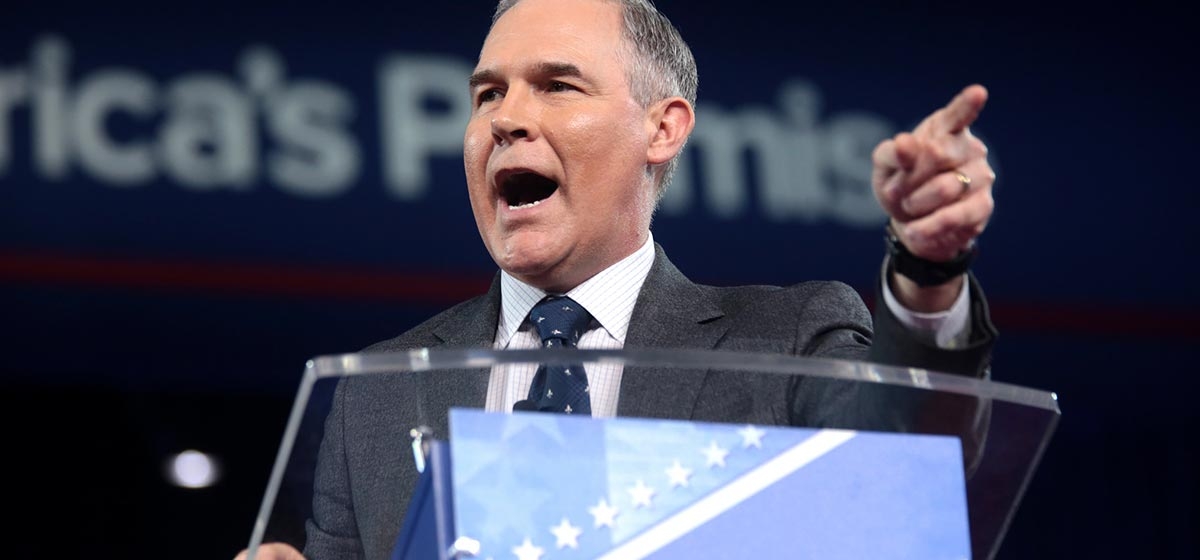Democracy, Populism, and the Tyranny of the Experts, Part XI

As far as reigning in annoying experts is concerned, Congress and the judiciary are a bust, albeit with a few tiny bright spots on the distant horizon, twinkling away like dying lighthouses on a storm-tossed sea. But what about the Presidency?
As noted earlier in this series, Donald Trump was the candidate of people who are fed up with experts. Has he delivered? Well, yes and no.
Let’s take a look at the Congressional Review Act (CRA), the law that allows Congress, under certain circumstances, to overrule Federal regulations. As noted earlier, that law was used precisely once between its enactment in 1996 and the end of 2016. But in just the first six months of Trump’s term Congress overruled seventeen regulations. That’s a spectacular relative increase, but in absolute terms it’s pitiable compared to the tens of thousands of regulations issued over that period.
Or how about the State Department? During his campaign Trump was brutally critical of foreign policy experts, describing them as the good folks who brought us Vietnam, failed to anticipate the collapse of the Soviet Union, got us into Iraq and Afghanistan, badly bungled the Arab Spring, helped create a disaster in Syria and appeased North Korea. Trump dislikes and distrusts experts of all stripes, but he loathes foreign policy experts most of all.
Naturally, Trump “cleaned out the stables” at State, demanding the resignations of every senior, non-Civil Service diplomat and installing as Secretary a man who never held public office and who was most decidedly not a part of the foreign policy establishment. Well, okay, that’s his prerogative as a new President. But now what?
The people who held the senior positions at State held them because they knew something about foreign policy – i.e., they were experts at it. Are we going to replace them with non-experts? Do we really want someone manning the Balkan Desk who can’t find the Balkans on a map of Eastern Europe?
Trump doesn’t trust foreign policy experts, but he surely can’t appoint amateurs to handle these important jobs. Therefore, he’s stuck, and State will likely remain a hollowed-out institution for a long time. The ironic result, as I’ve mentioned before, is that State is run by career bureaucrats who hate Trump and his policies.
In the interests of time, I’ll mention only one other example: the EPA. Almost the first act of EPA Administrator Scott Pruitt was to remove most of the professors who served on the Agency’s scientific advisory panels. Environmentalists and scientists were outraged, but Pruitt claimed he was merely following the law. The Federal Advisory Committee Act requires “the membership of the advisory committee to be fairly balanced in terms of the points of view represented” and that “the advice and recommendations of the advisory committee will not be inappropriately influenced by the appointing authority.” Yet, a full three-quarters of the EPA’s scientific advisors had received research grants from the Agency – that is, the “appointing authority.”
Okay, so Pruitt also “cleaned out the stables,” ridding the panels of experts who were merely lackeys of the career bureaucrats at EPA. That’s his prerogative and it may even be the law of the land. But now what?
The enabling legislation requires not only that the experts be unbiased, but also that they be experts. Is Pruitt going to appoint people who know nothing about environmental science? That would be absurd, and possibly unlawful. But if not, where is he going to find unbiased experts? Are there environmental scientists anywhere in the USA who aren’t beholden to the Federal government for the grants that support their careers?
It wasn’t always thus. Back in the 1990s the scientists on the advisory panels were truly independent, and as a result they were a constant irritant to EPA regulators who wanted to impose strict limits on industries and states. All too often, the advisory panels pointed out that the research didn’t support such strict rules.
But the regulators knew how to fix that—they began passing out grants to tame professors who would come back with the research results the regulators wanted. And when they came back with them, those professors got appointed to the advisory panels. The same thing happened across the Federal government, especially regarding grants from the National Institutes of Health and the National Science Foundation.
The scientists who decide who gets these grants are much more aggressive in attacking environmental issues than is the general public. Maybe that’s because they know more, and maybe it’s just groupthink. Since we don’t know, we need unbiased advice at places like the EPA. But, as noted, there aren’t any unbiased experts in environmental science. Hence, my guess is that Mr. Pruitt is up a famous creek without a paddle.
The Trump Administration has run up against what we might call The Universal Law of Expertise: Experts gain vast knowledge, and then they hog that knowledge from everybody else until it degenerates into dogma via groupthink.
What to do? In the concluding posts in this series—yes, the series actually will come to an end, and before Judgment Day, too – I will try to get my arms around this dilemma.
Next up: DP&TE, Part XII





